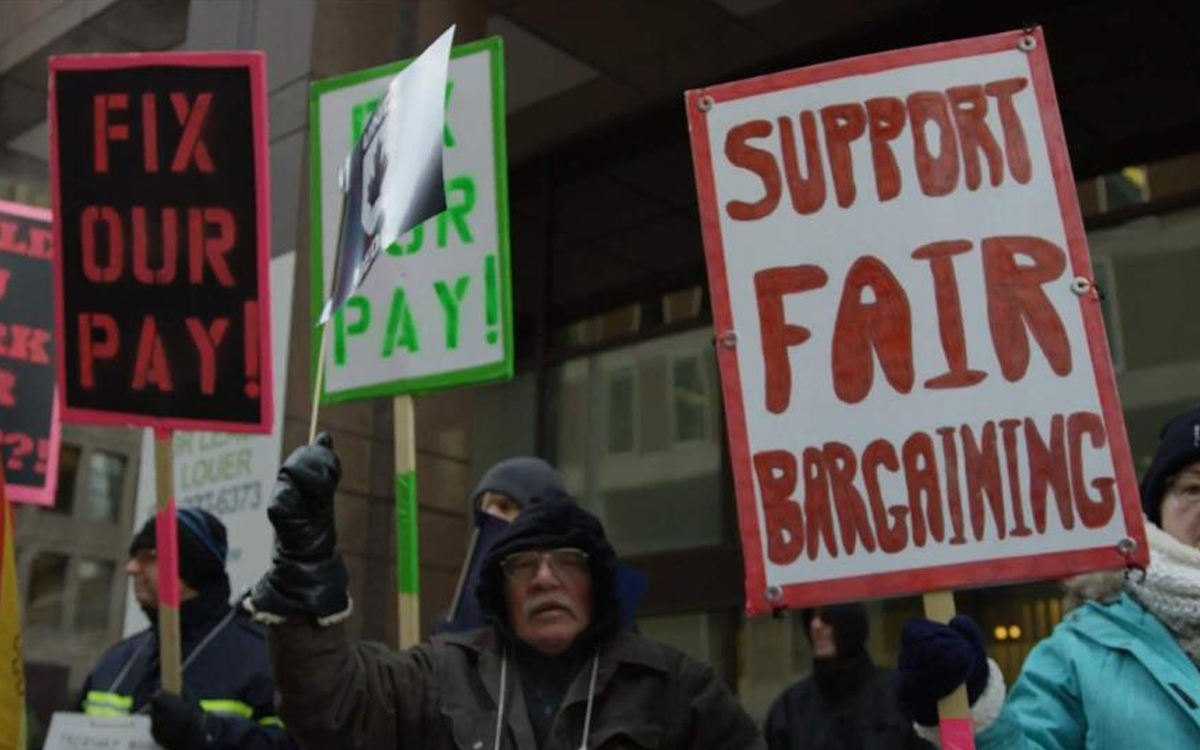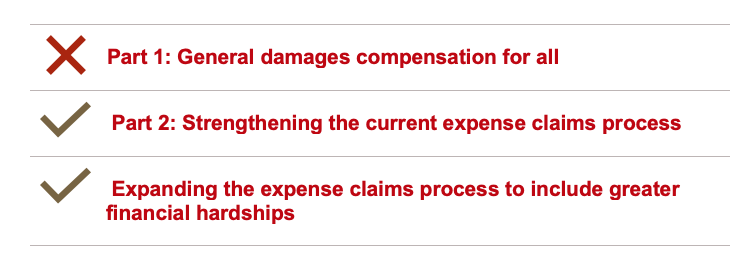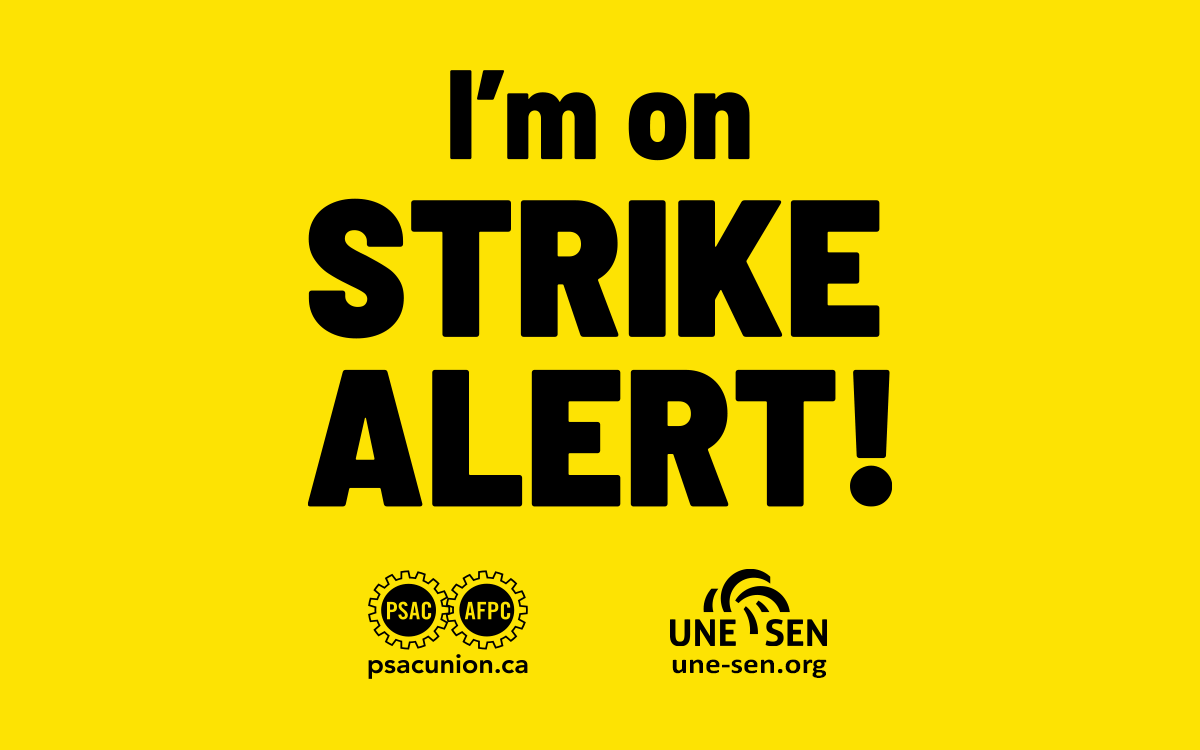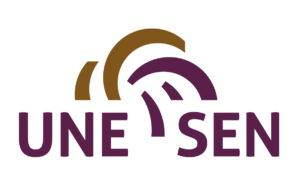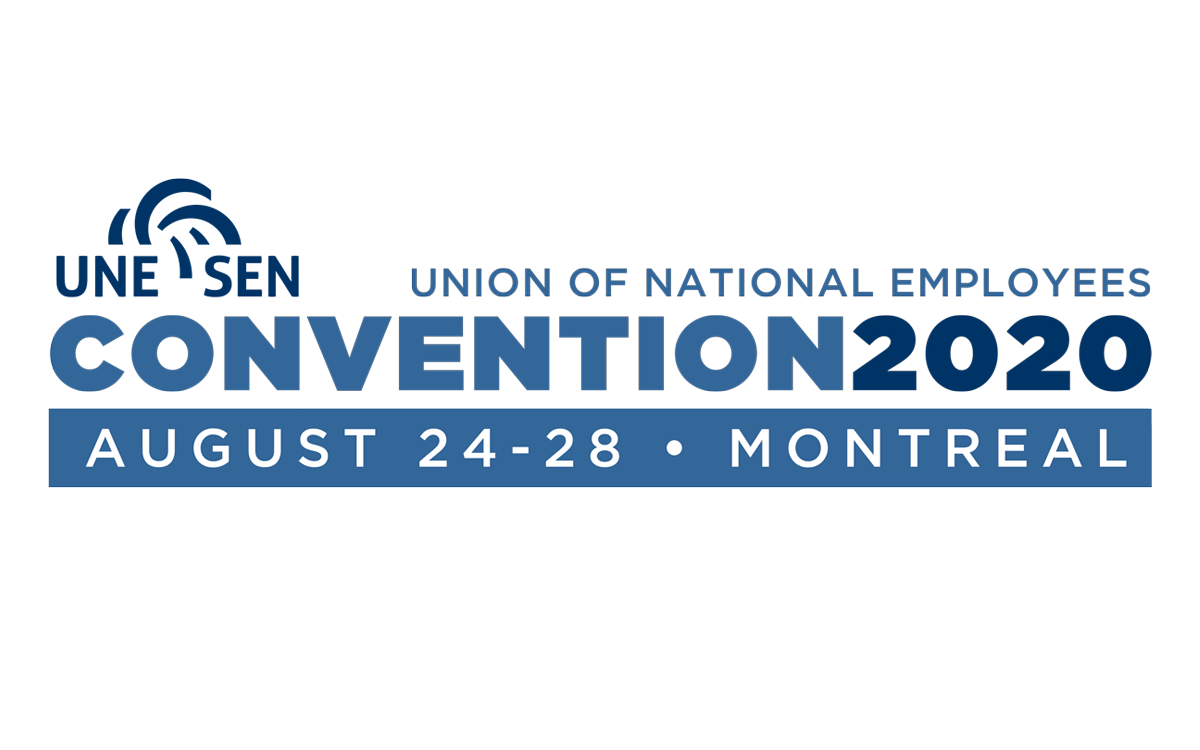
The 2020 UNE Triennial Convention will be held at Hotel Fairmont Queen Elizabeth in Montreal from August 24-28, 2020. Before we start paving the way forward for our union, there are a few important things you need to do.
Make sure your Local is in Conformance
You can only attend convention if your Local is in conformance. For a complete list of documents needed from your Local, see the Convention section of the UNE website.
Elect Delegates and their Alternates
Delegates and alternates are elected during general local meetings. The number of delegates per Local is determined by the number of members in good standing six months before the start of Convention as per UNE Bylaw 6, Section 11:
- Four to 100 members = one delegate;
- One delegate for each 100 members or portion thereof to a maximum of five delegates for any given local.
Observers
Locals in conformance can also send observers to convention at the Local’s expense. These members can attend convention, but they cannot participate in debate or vote. There is a $75 registration fee for observers, to cover the cost of Convention materials.
Submit Credential Forms
Credential forms for each delegate, alternate and observer must be submitted to UNE. Credential forms for delegates and alternates must include a copy of the general Local meeting minutes showing the election of those members. The credentials forms are available for download on the Convention section of the UNE website.
Registration Deadline
To be recognized as a delegate to Convention, members must complete the online registration and submit the following documents by April 24, 2020 at 4pm Eastern Standard Time:
- Credential forms, including meeting minutes showing election of delegates and alternates;
- Local financial documents in conformance with UNE Bylaws and Policies.
Members who miss the deadline will not be able to participate on convention committees and are considered late delegates. Late delegates are seated at Convention by way of procedural motion during the early stages of the opening of our Convention.
Questions about Convention Logistics and Registration?
We hope you will find all the answers on the Convention section of our website.
If you require additional information, please contact Suzanne Boucher, Convention Coordinator, at events@une-sen.org or by phone at 613-560-4359 or 1-800-663-6685.
RESOLUTIONS
Option 1
Locals should appoint a convention resolutions committee; these are normally made up of three to five members. Some Locals may prefer to appoint a committee for each resolution topic: constitution and bylaws, finance, and general resolutions. Your Local should issue a notice asking members to submit resolutions to your convention resolutions committee. Allow plenty of time for the committee to prepare a report. Members of the committee should also be encouraged to submit their own resolutions. Each committee’s report and additional resolutions should be presented during a general membership meeting. This meeting should provide ample time to debate resolutions before members cast a vote.
Option 2
Any member in good standing can submit a resolution to Convention by having it cosigned by five other members in good standing.
Submit Your Resolution Online
You should submit your resolutions electronically on our website. Completing this process significantly reduces the time required to prepare resolutions for committee review in June. If you do not have internet access, you can submit your resolutions by mail or fax.
Submit Supporting Documentation
The resolutions you submit online must also be supported by hardcopy versions of either the signed minutes verifying that the resolution was adopted during a general membership meeting or the resolutions form cosigned by five other members in good standing. You can download the resolution template on our Convention page here.
Please send these hard copies to the attention of Ateau Zola by email at resolutions@une-sen.org.
You can also submit by fax at 613-560-5208, or by mail at: Union of National Employees 900-150 Isabella St. Ottawa, ON K1S 1V7.
Resolutions received after April 24, 2020 at 4pm Eastern Standard Time will be deemed late and will be dealt with after all other resolutions.
Questions about resolutions? Please contact Ateau Zola at resolutions@une-sen.org or by phone at 613-560-4343 or 1-800-663-6685.
In Solidarity,
Kevin King
National President
Union of National Employees

